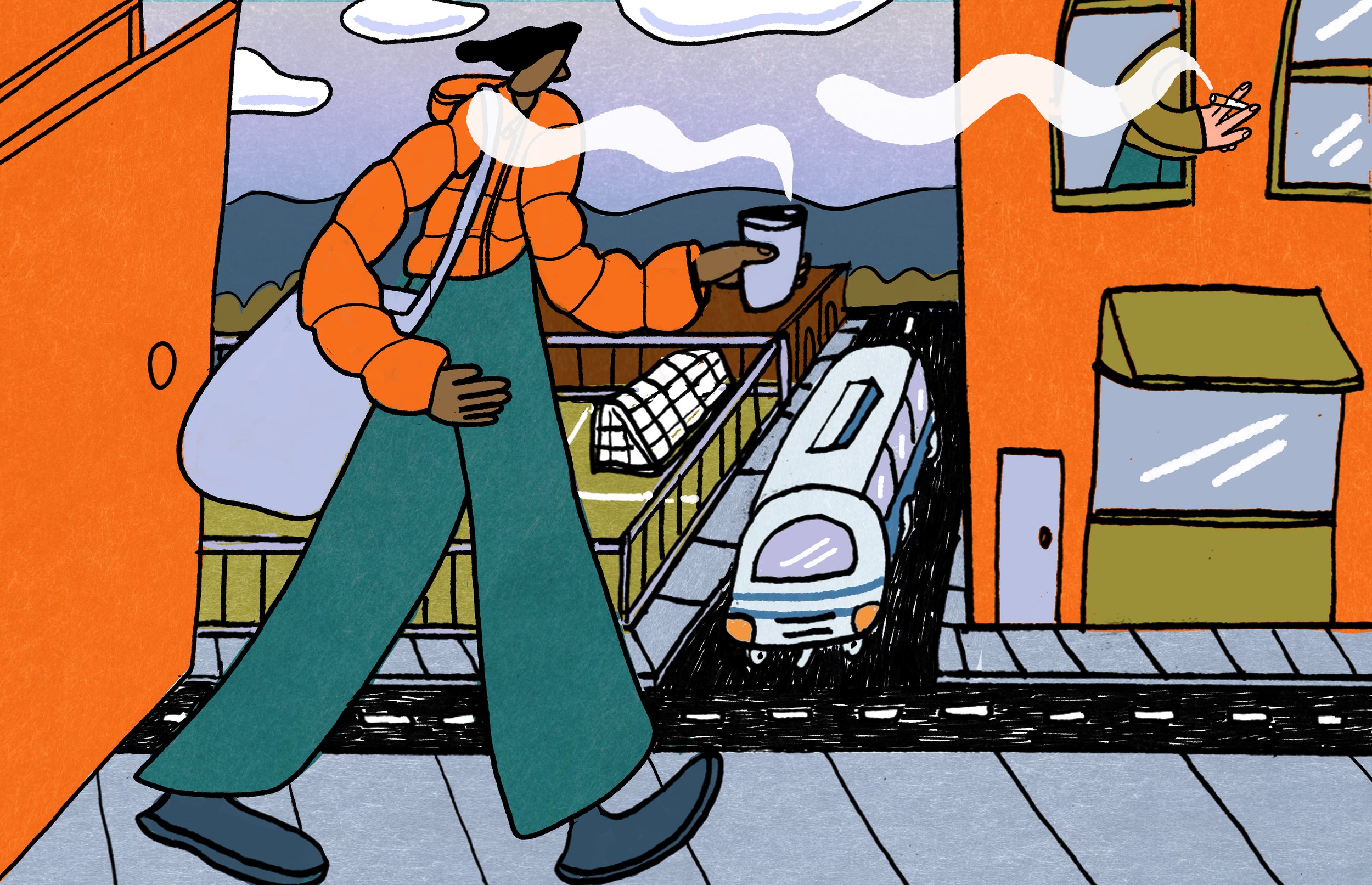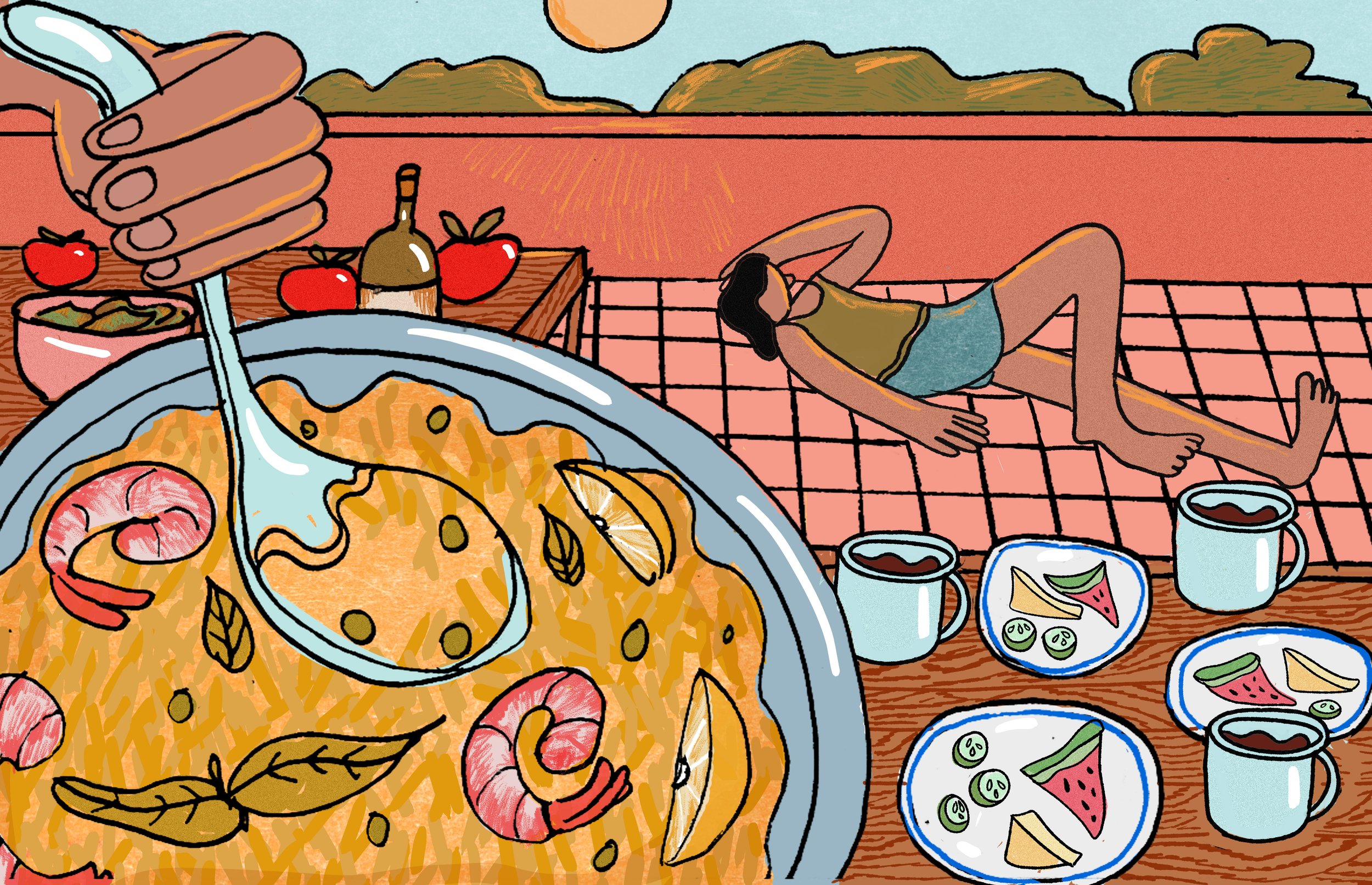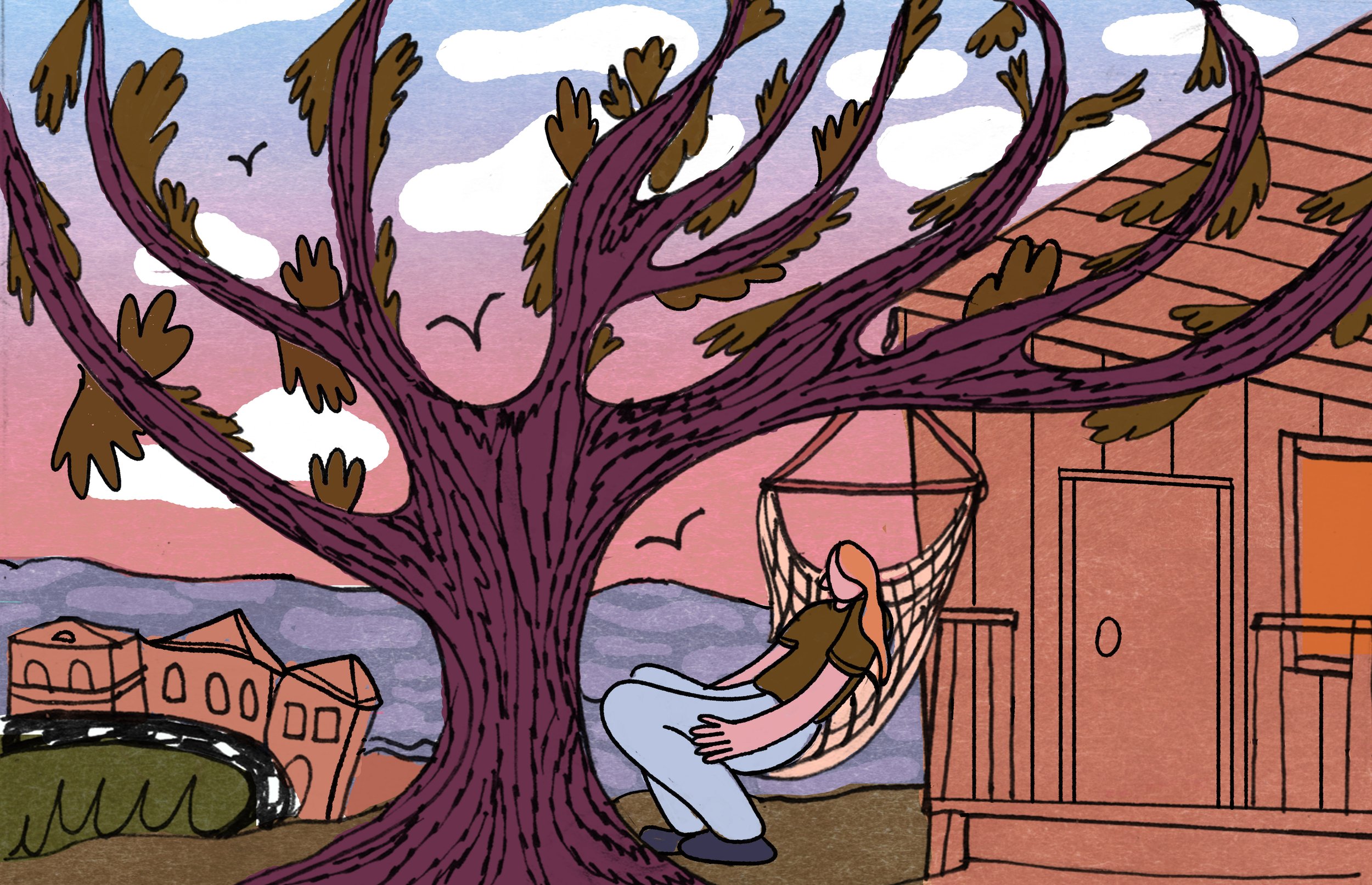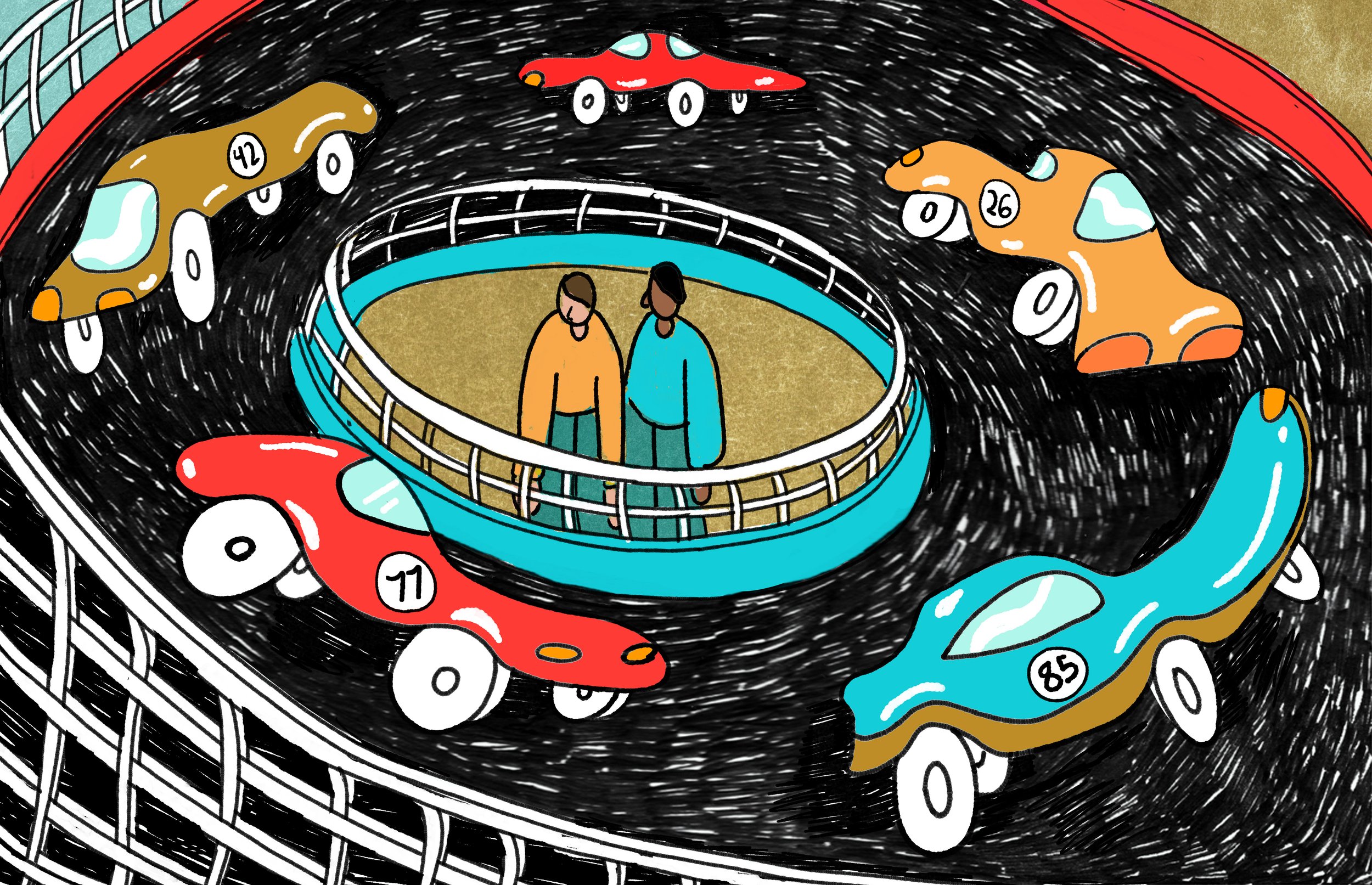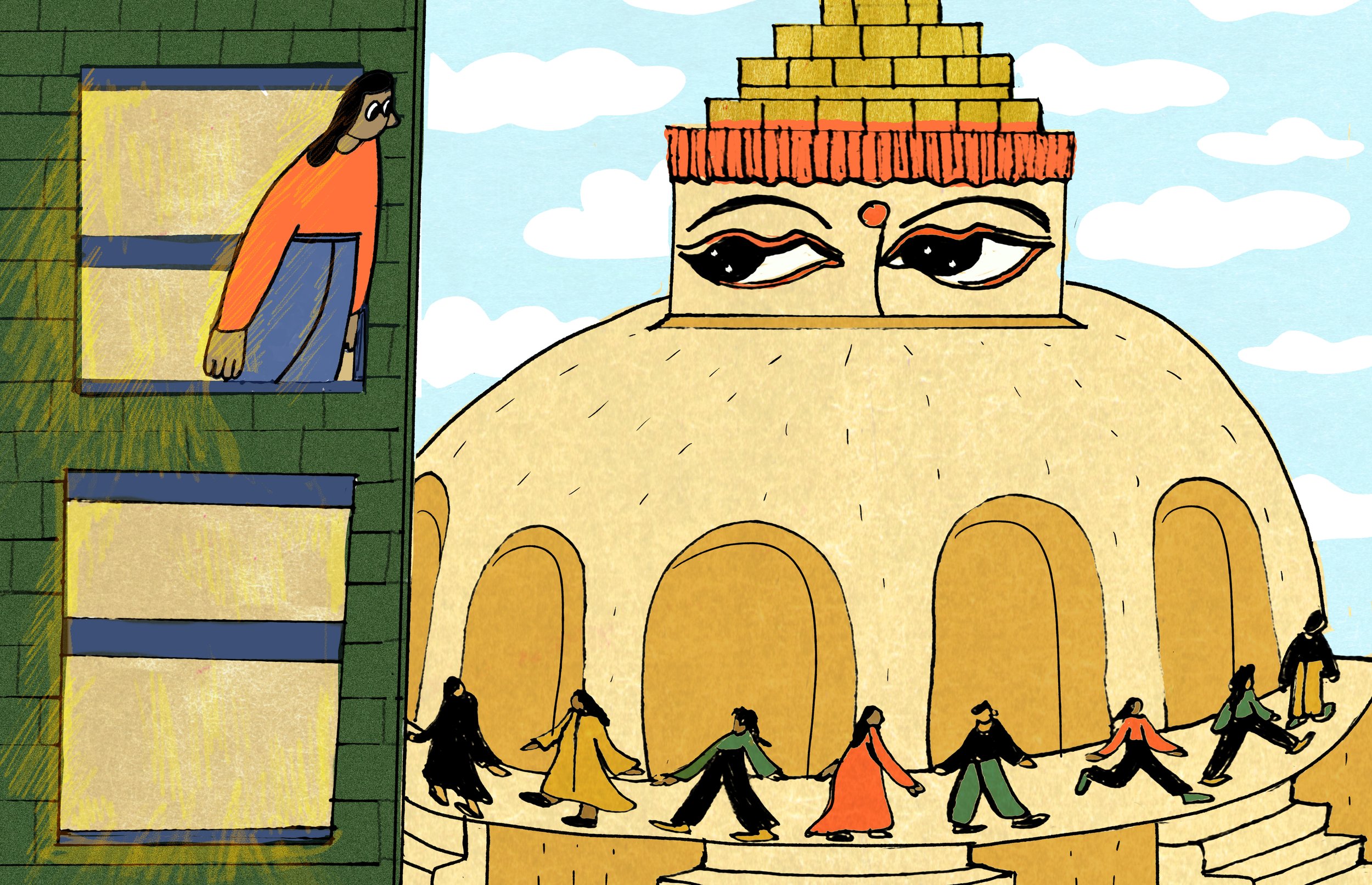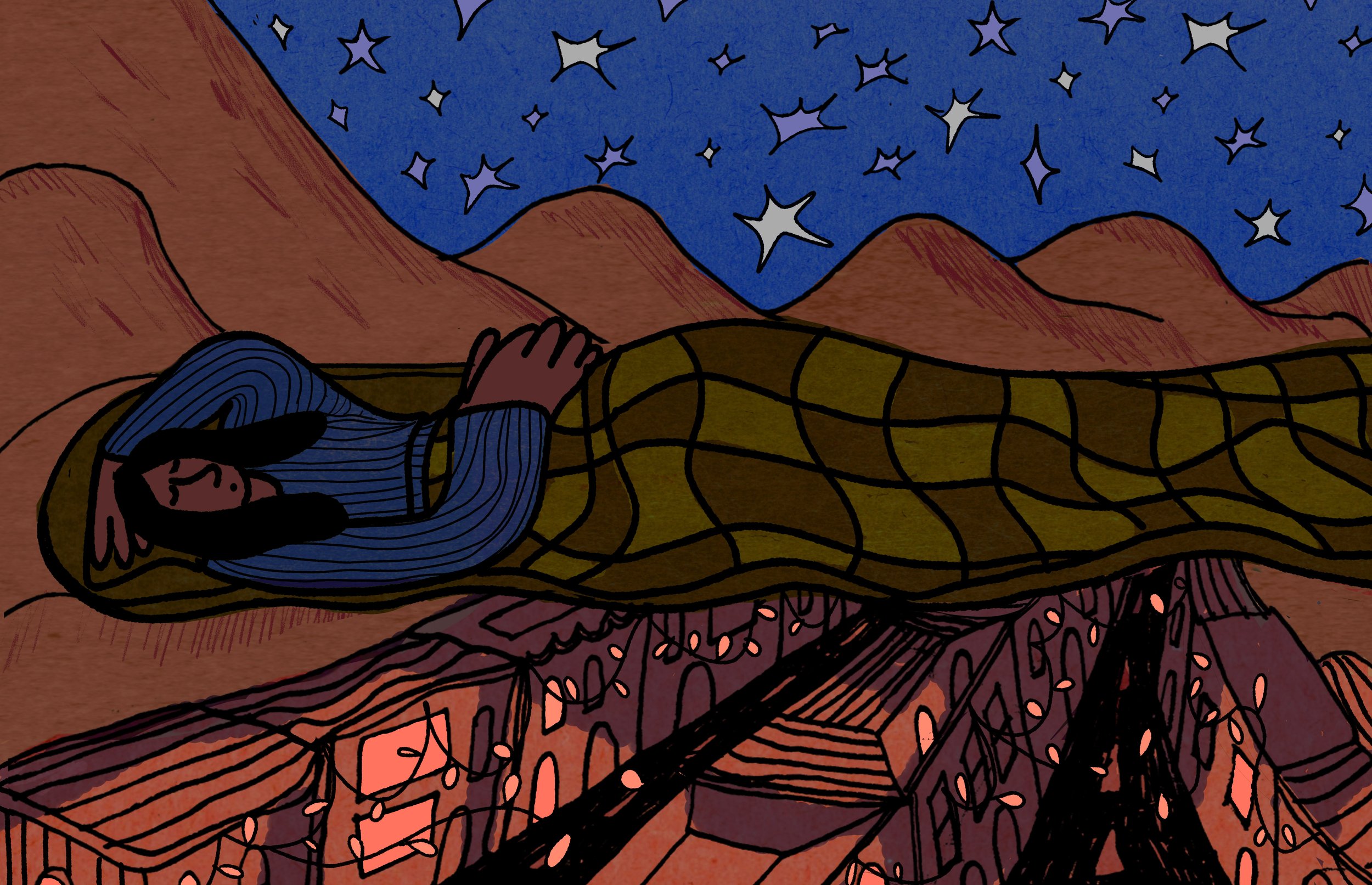3 p.m. in Sa Cabaneta

3 p.m. in Sa Cabaneta is when your brother cleans the pool. He culls the dead leaves into the net and throws them over the hedge. When he’s done, he walks into the house and the air trembles where he’s just stood.
You are twelve years old and lying on the floor in your room. Drooping palms outside the window cast an idle shadowplay on your walls. Everything you see is strange and echoed and muted as if you were looking through the water at the bottom of a deep, slow sea.
Every day, you wake up late and tired because of the heat. Before you leave the bed, you make plans for the day, but the sun soon turns them to vapor. Your parents say you should try to enjoy yourself more. Get the most out of your stay here, they say. You’d rather they left you at home and let you play with your friends till the summer ended. But you are here, in this old rented house full of belongings of people you’ve never met. You sleep in their beds, eat from their plates, and lounge on their lawn chairs.
Your mother keeps black iced coffee in a great glass jug in the fridge. You go downstairs, pour yourself some, and water down what remains so she won’t notice. You don’t like the coffee but drink it anyway and sweat it all out. You read Hemingway and Camus in your room with the blinds down and an electric fan on, and the blinds jingleagainst the window frames, and you’re growing cynical and worrying you’re becoming a nihilist, but you’re probably not.
All you want is to occupy yourself. Your hands reach for something to fiddle with. But there are only the blades of the droning fan, the narrow spaces in the window shutters, the ants that bite your ankles, and a bowl of soft fruit candying in the full sun on the patio dining table.
You declare war on the lazy afternoon. You put on your swimming trunks as if you were changing into a battle dress. On the horizon, white mountains siesta belly-up like some sleeping giants.
You jump into the pool. Water spills out and fills the gaps in the cracked ground, like soldiers running down a trench. The sun is the burning end of the fuse; the explosion that takes away your sight and fills your lungs with flames.
Dead leaves stick to your arms as you trod in the pool, looking for drowned wasps. You always wonder why so many drown. There are always leaves, no matter how often you or your brother collect them, and wasps. You cup your hands around their little bodies and throw them out of the pool with great fans of water splashing up. After a while, they dry up and fly off. And then they come back and fall into the pool. Again and again. You begin to understand. Everything alive loves water too much.
There’s a new shape floating in the corner. A small lizard, and its eyes are open. You worry it’ll jump at you, but when you take it into your palm, it doesn’t move. You softly poke its head, and it doesn’t move. You put it on the hot edge of the pool, in the sun, as you think it would like to be.
But when you turn away, an orange tabby comes out of the bushes and eats your lizard. It jumps over the fence to your neighbour's garden, gone just as fast as it came.
You plunge in to hide from the heat underwater. From the bottom of the pool, you watch the sun cross over your head. A few somersaults and a handstand, and you’re floating on the surface like a dead leaf.
Then your brother comes to clean the pool.
About the Author
Julia Krzeszowska grew up in Poland. Currently, she is working towards a degree in English Studies. In her writing, she combines her love for language with her other passion, traveling.
Illustration by Jane Demarest.
Edited by Aube Rey Lescure.


